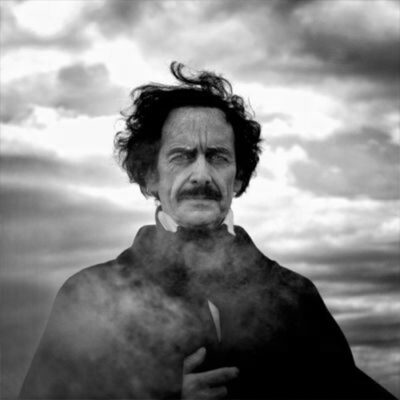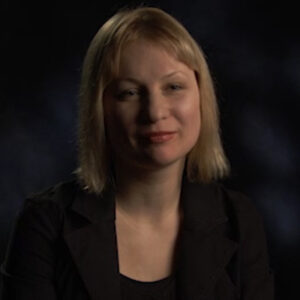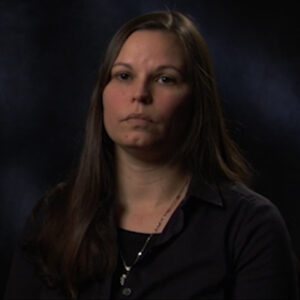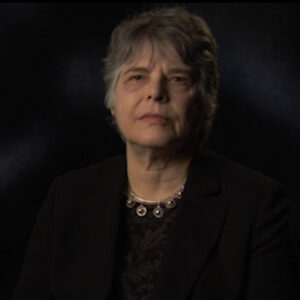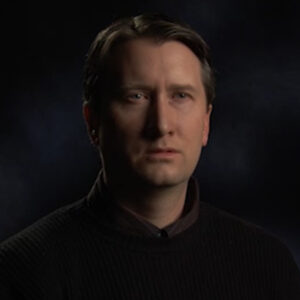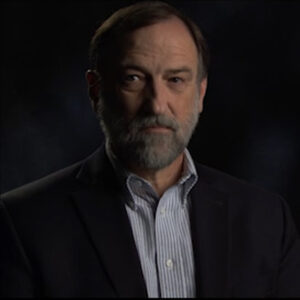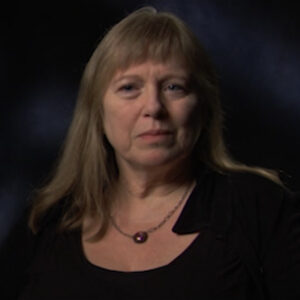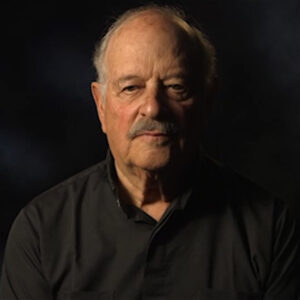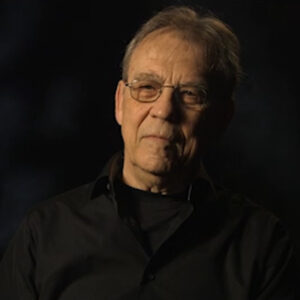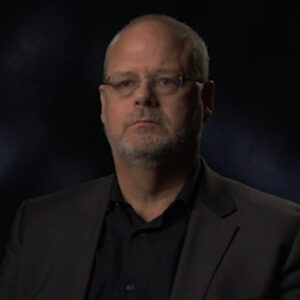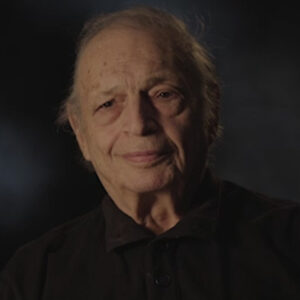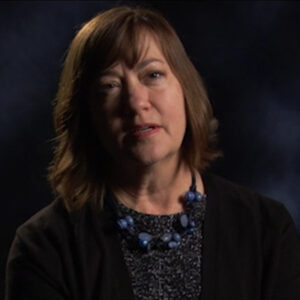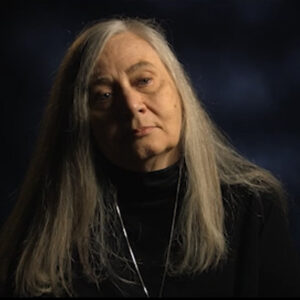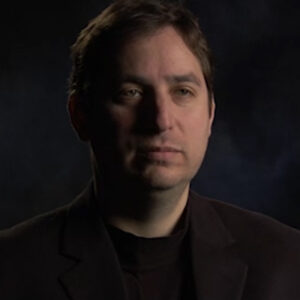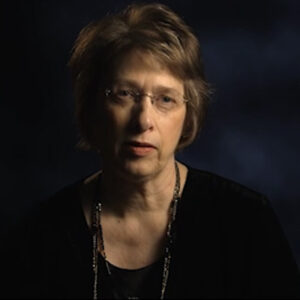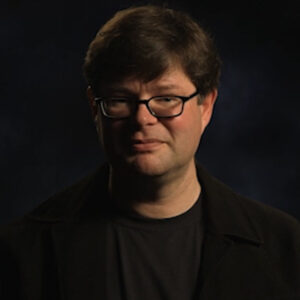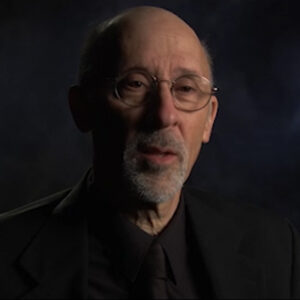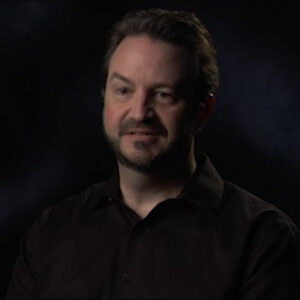Speaker So how would the Southern literary message, early 20s, his first real serious job in the business? What is he doing, how is he developing and creating and forming?
Speaker So suppose my first job at the Southern Literary Messenger is really significant to his development as a writer and also as a reviewer, a theorist, because it really is the first chance that he has to get his his foot in the door as as an editor, as a as a magazine, as an American tastemaker. He sort of prided himself on this idea of being a tastemaker. And that’s where he where he first starts to really write a lot of literary reviews and establish a reputation for himself as a reviewer, as a particularly harsh reviewer. And he earned that fairly quickly, earned the nickname of the Tomahawk because he was such a harsh reviewer. And in retrospect, it’s not necessarily that he was even that harsh. It’s just he tried to uphold certain objective standards rather than writing puff pieces for his fellow American authors. There was a there was a well-developed sort of payola system in American press at that time where where publishers would pay editors or reviewers to write favorable reviews of their of their authors books. And there was also the the literary nationalist scene, which exerted further political pressure for authors to to be praised simply because they were Americans. Author, authors being praised just for being Americans was not something that Poe was interested in doing.
Speaker He felt like readers would eventually sort of see through that idea that good writing would would sort of manifest itself. And he thought that if American writers, Poe thought that if American writers were really to succeed on the international scene, they needed to self evidently prove themselves to be up to the par of their British counterparts.
Speaker That was great. OK.
Speaker Oh, and I should talk about where that this is also where he writes his review.
Speaker Yeah, OK, OK. I just want to back up above and maybe slightly set slightly wider context. OK. In terms of his life or in terms of the national scene or of the fact that we’re kind of a new and raw country, OK, people now just right can’t imagine what it was like to be in this new country, this new culture, this new thing on the planet.
Speaker And so therefore, we had no tradition. If you could sort of just give us that little bit that we really didn’t have much of a literary tradition.
Speaker And Poe jumped into that void and wanted to. Really be sort of the source of the birth, OK?
Speaker OK, yeah, I can talk to that. So in the in the 1930s and 40s, when Poe is writing, there really isn’t a national literary scene yet. The nation is still very young. The Early Republic is establishing itself.
Speaker You have a few writers earlier, Charles Brocton, Brown people, people like that.
Speaker I’m blanking on James Fenimore Cooper writes sort of earlier tales from the 30s or 40s, maybe posing the pose, writing in the late 20s he’s born in or. Right. So, yeah.
Speaker So he started the literary lesson. Yeah.
Speaker Yeah, I think, yeah.
Speaker Around about 1830, you can say when he first gets into his career, OK, that America is OK.
Speaker So so when Poe first gets into his career as, as a magazine guest, as an editor for the Southern Literary Messenger, there really isn’t a literary tradition within America there. Yes, there have been writers, but there there hasn’t been established this idea of an American literature and American literature as distinct from British literature. And what what there has been that’s been written has been seen as somehow implicitly inferior to to the British writers. And so, obviously, there’s there’s a huge literary movement going on. It’s the golden age of periodicals. You have journals and magazines cropping up all over the place with with writing, sort of like the blogosphere is now right online. People people are publishing self publishing, all sorts of things. And a lot of it’s great and a lot of it’s not so great. So Post sees himself as having this opportunity as he enters the magazine world with the Southern Literary Messenger, as having this opportunity to start to shape what American literature might look like. And he seizes upon this fiercely because this is a huge opportunity for him to set forth his ideas. And he had very strong ideas about what good writing would look like and what American writing would look like. And in the pages of the Southern Literary Messenger, this is where he takes advantage of opportunity. For example, in his famous review of Nathaniel Hawthorne’s Twice Told Tales, it’s part review of that book, but it’s also partly an excuse for Poe to expand upon his own literary ideas, his literary aesthetics, or what he would have called his literary poetics and the principles that he believes that he shares with author. And he’s very favorable when he talks about Hawthorne. But the principles that he thinks are most important are first and foremost this idea of a unity of effect, unity of effect. We take that for granted. Now, it’s hard for us to really understand why that’s such a significant idea. But at the beginning of of what Poe recognized as the American short story as its own unique tradition, he and Hawthorne were really the only two who were writing in that vein. And that’s why it’s so important for Poe to put forth this idea that, yes, Hawthorne is doing what we all need to be doing in the sense of writing in a way that is craftsmanship, that is not the spontaneous overflowing of emotions that sort of all over the place. Poe was very rejecting of that idea of the the solitary genius that just, you know, magically produces works of of masterpieces. Instead, he recognizes himself and other writers as being meticulous craftsman who labor long hours to to make sure that their literary text perfectly embodies the authorial intention. Right. So for Poe, there’s always this tension between the author and the reader. And the author’s job, as far as Poe is concerned, is to so perfectly embody his authorial intention in the text that the reader can’t help but read that work the way the author intended.
Speaker Now, of course, Poe recognizes that that’s not always possible. In fact, it’s probably not ever possible. But his ideal is that and he says in that review of Hawthorns of Hawthorns twice told tales that during the hour of perusal. The soul of the reader should be at the author’s control, the soul of the reader should be at the author’s control. I mean, you can’t you can’t be more dramatic, more emphatic than that with this idea that that the text owes itself to to authorial intention. And yet Poe knows full well that readers read the way that they will. They come they come to their reading experiences with their own, with their own background, their own knowledge or lack of knowledge. There they can be very ignorant, readers can be very ignorant. And, you know, we post famously hostile to the idea of democracy to write. And I think those ideas sort of flow into each other. This this idea that sort of the rabble can’t be trusted to read correctly or vote correctly. But but Poe is very invested in this idea that the that the author control the text. I think in part because he recognizes that in the end, the author is no longer present. The reader takes over control and the reader gets from from the reading experience what he or she will. And that is really a source of, I would say, horror for Poe. And I think that that’s part of why so many of his stories are about this eruption of horror. If you look at those stories, a lot of them are about the eruption of that horror from the very reading experience.
Speaker So he writes stories where where the loss of control is represented in a specific way that that references authors and readers within the text. I think for for Poe, the the the uncanny double emerges as the central figure, because if you think about a literary text, the text as a mirror where where the author sees himself in taking the role of the reader.
Speaker Sorry, I’m just too much, sir. No, no. I just thought, ok, ok, ok. I know the gesture. It’s great. I just want to ask about the ok, sure. As a separate thing. OK, that’s fine. I’m sorry.
Speaker I’m just Mandera go back to, you know, very poetic systems. If you could go into a little more detail about how he wanted, he wanted to set the tone from the very first sentence and he wanted to make sure it wasn’t too long, but not too short. The reader wouldn’t get up, could be read in one sitting. Yeah. Would take off some of these things without too much, to be sure. OK, if you want to pick an example from a fairly early I mean, I don’t know if you have a favorite example where he really where he really nails it, I think.
Speaker Yeah, yeah. I mean, all all of his stories really do that. And so the earlier ones would be. So you want me to sort of tick off the main points of his poetics.
Speaker OK, so so I’ll ask the question is, is.
Speaker The unity of effect. How does that work? What are some of the elements of it? What’s a good example from this?
Speaker OK, so so one of the main ways that Post sees the author is being able to maintain that unity of effect or or achieve that unity of purpose, of oppression back to anything else.
Speaker OK, we’ve done this thing. OK.
Speaker OK, so you want to talk about where that he writes about that in the Southern Literary Messenger.
Speaker Just I think you can just start off with his theory, his theory of.
Speaker OK, suppose theory of literary aesthetics of what he would have called poetics is really focused on several main principles.
Speaker The first one of those is the the unity of effect that everything in the text needs to be focused on one single idea that there shouldn’t be any extraneous words. And in in that regard, he sees the author or the poet as being a craftsman who really has to weed away anything that doesn’t go towards that single effect. And we can see this going on in his own stories that he gets right to the story. He has so many famous first lines that immediately pull you into the setting and the character. So so he really focuses on that idea. Idea. The reason that’s so important to Poe, that’s that single unity of effect is because he thinks short works are better for achieving that there. If something can be read in one sitting for Poe, that’s ideal. He doesn’t have time for novels. He wants short stories and short poems. He thinks longer works can have flashes of brilliance, but they don’t have that overall shape that he really wants to see that that unity. That’s why he sees Hawthorn as such a kindred spirit. Hawthorn in this in this in the early years is also writing short tales or short stories, what would later become the modern American short story. And so Poe’s very adamant about establishing this idea of the American short story, what he would call the tale as being central to the American literary tradition. Remember that there’s no strong American literary tradition at this time. This is the early days of the American republic. We haven’t established a lot of authors that are are uniquely American or different than British authors.
Speaker So most of the American reading public was still reading British British authors rather than Americans who thought that there was a strong place for American authors. Within that within that reading, reading public. However, he felt like we needed to hold the American authors up to an international standard, a strong international standard of quality. He refused to write puff pieces. He refused to participate in the payola system that the that the American publishers had going where they would get reviewers in journals and magazines to praise authors just for the for the fact that they were American. So so the the main things that people looked for were that that single unity of effect for four authorial control authorial mastery over the subject. And also he wanted to always make sure that the that the author wrote about whatever he wanted to write about. And that was one of the most controversial things for for the American readership at that time and and frankly, for the American literati as well. Poe was famously dismissed by Emerson and throw these kind of authors who were very strong proponents of American positivism. Poe didn’t have time for that.
Speaker Poe believed in art for art’s sake, which is why we we find that he’s initially sort of rejected within the American literary literary movement because his poem, his poems and his short stories were often seen as immoral, as being vulgar, as being sort of disgusting. You know, you’re never going to read a piece by one of the other serious writers from that era that is quite as quite as repulsive or or goes into as much madness and and sort of dark psychology as Poe’s interested in. And yet he becomes immediately hugely influential on the international scene. Right. Because the French symbolists, for example, Charles Charles Baudelaire, these subjects were jumping too far ahead.
Speaker OK, but that’s OK. OK, you’re going to have to back it up a little bit, huh? Yeah. There’s so much there. Yeah.
Speaker Where where we could maybe dive in a little bit deeper. Much deeper is to serve oneself. OK, could you pick a story. Demonstrates.
Speaker Display Lesieur.
Speaker You want one of the early ones, one of the early stories where he’s really. I can talk about logia so good. Yeah, that’s fine. That’s the one Paul Collins brought up.
Speaker Oh, really? Oh, interesting. Really?
Speaker Well, yeah, that was post favorite. So he called it his best, his best story. So so Sopo talks about Lygia as being his his best story. And I think that’s because it’s one of his early, earliest published stories that really captures what he believes is that unity of effect. And it’s a story that he comes back to periodically throughout his life and edits and changes and refines. So, again, that just reiterates the way that he saw himself as this as this master craftsman who needed to come back to his work and make sure that it really achieved his his aim for it. The amazing thing about Ligeia, too, is that it’s one of the stories in which this figure of the uncanny double emerges and the the uncanny double for PO is such a crucial figure because it almost always relates to authors and readers and their relationship between the two.
Speaker Sorry, you want me to go there? Can you get me to define that?
Speaker I think you need to define that. So maybe you could just just start fresh, clean, self-contained answer about how. You think or you see here. So what is this this idea of yours?
Speaker What is the uncanny double or why is it why is it important to PO?
Speaker Why is it important? Why is it important to understand? Why does it help us understand? First of all, what is it term that no one’s going to know?
Speaker OK, so, you know, if you could say there’s a term, the uncanny double, which means that it was very helpful in understanding.
Speaker OK, so so the term uncanny double is is a Freudian term and Freud’s writing, you know, almost 100 years after Poe, but the idea of the uncanny double is already present imposed time. And a little bit earlier, it’s Dostoyevsky writes a story called the Double. There are lots of horror and mystery and and ghost stories that involve this idea of doubling. And it’s it’s that that doppelganger figure, the the the mirror image of the self that in most of these stories is a profound image of horror. Right. It freaks us out when we see somebody who looks just like us. And Freud goes into a lot of detail about why that is. And I, I think the Poe intuitively understands why that’s such a disturbing figure for us. Right. Because that that uncanny double represents the self. But it’s also this external this is external, inaccessible figure that seems to be enjoying our own life more than we can possibly enjoy it ourselves, because that the external person isn’t haunted by the horrible interiority, the suffering, the all the all the the negative emotions that we all struggle with. This uncanny double figure seems to be exempted from having to deal with all that interiority.
Speaker And yet at the same time, when the when the eyes meet, when the when the when the person encounters the double and they look each other in the eye, it’s this moment of supreme horror. And we find this enacted again and again. And Poe’s stories probably most notably in his story. Lygia when when that eye meets, we think of the eye as the window of the soul. And yet when it’s the double especially, we realize that we have absolutely no access to the interiority of the other. We’re looking when we look into that, the the black pupil of the of that others eye, we’re looking into the abyss that that person, which we have no access to their real experience. They look at us and they see an object that’s that’s the supreme horror for Poe. And I think that that really comes forth in a story like Ligeia, where at the end and again, there’s this this uncanny doubling in that story between his his beloved, the the character of Legia, that is his his earlier wife, that he his soul mate who dies.
Speaker And then he he remarries and he marries Rowena, who he hates just because she’s not Lygia. But then Rowena dies too. And after she dies, when when the narrator figure, which we often conflate with this with Poe, of course. And there are reasons that we we tend to do that. Probably none of them are good reasons. But but we do tend to conflate these narrators with Poe as an individual. But when when Lygia emerges at the end of that story from the from the dead body of Rowena’s, she takes over the dead body of Ligeia or of Rowena and sits up and walks across the room toward him and meets him and opens her eyes. And when she opens her eyes, that’s the moment when he recognizes that this is logia and the story ends with his shriek. So we’re lost at the end of that story with just just that gaze of the other end and a voice.
Speaker Those are the only things that are left. And I think for Poe that really encapsulates this idea of that’s that’s all that’s left in a literary text. We have the voice of the author that we can’t ever access the body or the the true mind of the author. We just have that voice that speaking out of the void to us.
Speaker And then we have that gaze of the other that’s just looking into us and we have no idea what it could possibly be thinking.
Speaker That help, we’re going to have to cut these down. That’s right. I know you do. And I’m trying to contract as hard as a professor. You know, I’m used to just I talked at your job, so. So that’s actually that’s another really good question.
Speaker And why was how are we doing psychology with psychological fiction, with the idea of horror, with with primal human fears and human emotions. But no one else is really writing about it, at least not in America.
Speaker Right? Well, maybe if you could even refer to the Gothic Church. He was accused of sort of borrowing this from Germany. Sure. Right.
Speaker But in fact, he was he was doing his own. He was doing his own thing. Sure. Yeah. So so when he was writing in.
Speaker OK, you ready?
Speaker OK, so Wimpole is writing these early tales, the these horrific tales.
Speaker He’s borrowing a lot of these ideas from from author, from German Gothic authors and from Scottish authors. There was a famous journal called Blackwood’s Literary Magazine, Scottish Journal that that Poe read and was very influenced by.
Speaker But there weren’t a lot of American authors who were writing these sorts of horrific, horrific tales. And yet I think Poe was fascinated by them, not just because he love the Gothic and the way that it could set a scene.
Speaker And, you know, with the heavy draperies and, you know, the the burning candles and all those things that we think of as the normal trappings of of Gothic tales, Poe loved that stuff. But I think what he was really after was because he wanted to exert so much sort of control over that the readers experience. He was he was immediately drawn to this idea of sensationalist fiction. Sensationalist fiction is the the best, quickest way that an author can elicit a strong physical response from the reader. He wanted to write tales where the reader would shriek and throw the book down, or where the reader would find themselves sweating or feeling nervous or have have goosebumps going going up the back of their neck. The topos. Those were the marks of a successful story, right. Because he wanted to really get inside the reader, really, really affect them. And, you know, he’s successful. He’s hugely successful. That’s why kids still read Poe now. That’s why why people more than any other author right now, Americans know who Poe is. Your average American can’t name any other author from the 19th century. Poe’s got an NFL football team named after one of his poems. I mean, that’s just unprecedent Poe becomes, I think, a cultural icon in spite of himself in some ways, because he’s so driven to write these stories that will profoundly affect people that will it will startle us, that will terrify us, that will give us nightmares. And in fact, one of the reasons that he he hasn’t been necessarily favored in in literary or academic circles is precisely for that same reason. He’s seen as somehow unsavory as being a little too disgusting. Henry James, you know, a serious literary figure, tries to distance himself from Poe. He says, you know, an enthusiasm for Poe is the mark of an adolescent stage of reflection. And then the 20th century literary scholars dismiss Poe as being, again, sort of too disgusting, too juvenile. Even even today, you know, one of our foremost literary critics, one of our sort of tastemakers of this era, Harold Bloom, continues to dismiss Poe. He thinks that the Poe’s inclusion in the literary canon is is inevitable, but still dubious because pose an atrocious writer. You know, we still have this this sort of reaction against this. And part of it is that Poe is just sort of merely popular write the literary establishment has always been suspicious of popular writers, but part of it, too, is, is his his enthusiasm for the unsavory for the dark part of our psychology. He really is an honest writer. And a lot of ways more honest than then than any writer probably has has a right to be about what gets inside of us, what terrifies us, what what will keep us awake at night worrying about things. So Poe really is is a figure that prefigures our understanding of human psychology. And he’s fascinated with exploring that, that what he called the imp of the perverse this this idea that, OK, let’s look at that separately.
Speaker OK, yeah. So so we leap ahead in time because I’m sure. Yeah. Yeah.
Speaker I’m sorry, I, I don’t tend to think of him as chronological. I jump all over the place. Yeah.
Speaker It’s great. But the end of the first so is he wrote that when his wife either had just died or was about it.
Speaker Yeah. Yeah. Right around that time.
Speaker Right around that time I had the success of The Raven. Mm hmm. Totally blown up. Mm hmm. Using this notoriety.
Speaker Sure. Everything else mean, you know, give us all that context. Right.
Speaker You’ll have that assume that somehow we’ve set up this idea that at its greatest moment of popular success, he’s managed to shoot himself in a number of ways, as well as going through this tragic right thing and losing his life. So what what is the the perverse. What’s he saying there?
Speaker And why is that something that connects and resonates with.
Speaker So the imp of the perverse is so important to understanding Poe, because it it marks his his real foray into human psychology, trying to understand not our best impulses, which, of course, you know, as Americans, we always want to think of ourselves as perfectible as as sort of achieving our potential. That’s the American dream. Right. But posse’s the dark side of the American dream. He sees the way that we undermine ourselves, the way that we sometimes do things wrong, almost in spite of ourselves and almost because we know they’re wrong. He recognizes that. He recognizes that in ways that the rest of the world couldn’t even see until the 20th century. Once we had once we deal with issues like the Holocaust and Freudian psychology, those kinds of things prefigures that and recognizes that in the imp of the perverse, he talks about how how we feel drawn to to do wrong in spite of ourselves. He uses the example of of the bridge, you know, that you’re walking across a bridge and you’re you’re sort of afraid not that you’ll fall off the bridge. Right. Because that would be a logical fear. But you’re afraid that you’ll somehow feel possessed to throw yourself over the edge of the bridge. I mean, that just comes from a dark place that I think Poe is willing to to walk us down and that, you know, that’s that’s that’s really his success in terms of viewing humanity sort of for for what it is he believes. Yes. That we can be noble, but that we have lurking inside of us this imp of the perverse.
Speaker Yeah, OK, um, going back a bit in time to I guess, when he’s, you know, he’s pretty successful in Philadelphia for Burns, but then published now.
Speaker And so I just kept hearing that bloater.
Speaker He just noticed. Nothing we can do about it, and there’s no way to turn out OK.
Speaker No, I’m talking loud enough that you won’t have one.
Speaker OK, I want to ask you about how as a precursor of modernizing, but I like to keep it contained and time is just sure. All over the place. But but let’s say after he’s published all the House of Usher had these successes. Tell-Tale Heart, um, but before The Raven. Reagan. Sure. And, you know, how is he? Do you see him in that period where he’s really kind of matured? Stay right here.
Speaker I had success with that, do you is a precursor of modernism, is he doing something really new and different? Is he pioneering?
Speaker Well, I think I think at the height of his powers, when he’s when he when he’s really sort of come into his own and achieved his his literary potential, what he viewed as his own literary potential, I think he absolutely is is influencing what will come later in terms of the modern American short story. And we can see that in later writers, that the echoes that we hear of Poe in their stories and not just in the horror vein, you know, he he’s he obviously hugely influential to Lovecraft and Stephen King. These sorts of authors, you know, are constantly praising Poe as being where their their ideas originate from. But he’s also hugely responsible for the rise of both detective fiction and science fiction. Two of the literary forms that come to define the 20th century, to come to define literary modernism. We don’t have a 20th century literary tradition. If we if we sort of remove detective and crime fiction and science fiction, those are those reflect the way that we’ve come to understand the world. You know, this is sort of the post enlightenment world that we live in. It’s it’s mechanistic.
Speaker We just about every profession you can name thinks of themselves as a detective figure in some way or another. Poe saw that. Poe recognized that and pointed us the way in his very short stories, in his invention of the detective story and in his writing of science fiction, in his sort of self-conscious literary pieces, in his essays, in the way that he would blend together sort of non-fiction, literary essays with fiction tales. He did all of this. You know, I would say he not only anticipates modernism and influences modernism, people like Faulkner. You know, Rose, for Emily, that’s such a post story. Right. But he influences the later posts. I would say Poe influences postmodern literature as well. So someone like Paul Auster writing the New York trilogy, you know that that owes huge debts to Poe, not just to his detective stories, but to a post story like the man of the crowd, which is is not quite a detective story, but is a bizarre twist on a detective story, again, in the same way that we see from Paul Auster or Jonathan Lethem, authors like that that are clearly postmodern.
Speaker All right, what was going on in American cities? Can you talk a little about this cultural context of anxiety and fear and booming immigration and some of your neighbors who you don’t even know? Mm hmm.
Speaker Of course, the other provoked a lot of anxiety. Yeah. So so so Sopo puts his finger on the the anxieties provoked by the rise of of American urbanity because he recognizes the way that that inner city we’re surrounded by strangers that we that we can go all day, go to work, come home, and we spend our whole day not not even seeing anyone that we actually know. And again, that prefigures modernism. Right. So you have Ezra Pound and and people, T.S. Eliot, recognizing that that sort of strangeness and horror that comes from from the urban experience. But posse’s that. And he writes about that in his detective stories, in the man of the crowd, in a lot of his other stories, he he recognizes that the American experience is starting to become not only more urban, but also more cosmopolitan. And I think that that’s why Poe becomes such an important literary figure for the rest of the world as well. Poe’s read throughout the world now and is cited as an influence by so many international authors because he recognizes sort of the forces of of industrialization, of technology, of urbanization and indeed of globalization, sort of coming together to shape the modern human experience in ways that it hadn’t ever been done before.
Speaker OK, the poetic principle, you just give a very brief, very layman’s, uh, analysis of our explanation of what that was and how did how was that kind of.
Speaker The his essay, The Poet, The Poetic Principle, so, so, so the poetic principle is really important as a as a manifesto for Poe, because Po Po imagined himself first and foremost as a poet. We remember him now more as a as an author of short tales and maybe a little bit as a as a reviewer and and a tastemaker too. But for Poe, the poetic principle was was key because it it allowed him to explain how he saw. Poetic works as having to be crafted, deliberately crafted, the he was reacting against the the English the British romantic tradition, right. So you have people like William Wordsworth the generation before. Well, before Poe Wordsworth is the one who talks about a poem being the spontaneous overflow of feelings. Poe completely rejects that idea. He thinks poetry is not written that way at all. He proposes in its place this almost too mechanical idea of poetry. And and it can seem strange to us now. It can seem it can seem artificial and to a little too mechanistic. But Poe sees literary craft as being something that can be mastered, something that can be learned, something that that you can look and you can sort of tick off the main principles that make a poem, a successful poem, and make make the reader respond in certain ways to to different sounds, to different metrical schemes, to to different rhyme schemes. And Poe plays with all of this in all of his literary poetry. Right. And and it’s and he’s he’s absolutely correct. Right. We we as human beings, as as physical bodies, we respond to to quality. Right. So not and you know, the easiest example probably is iambic pentameter. Right. And everybody knows Shakespeare wrote in iambic pentameter and all these other English poets wrote Namik pentameter. Poe doesn’t write a lot and I make pentameter, but he recognizes the power of those kinds of of of statements written in metrical verse. Right. And and we we hear that echoed all the way through, not just not just unselfconsciously literary poetic works, but in in our in our most famous American speeches, Abraham Lincoln delivering the Gettysburg Address, Abraham Lincoln, who was ironically born the same year as Edgar Allan Poe, 1889. A lot of people think of them as being from different times, but they’re born the same year. But delivering the Gettysburg Address, Lincoln calls upon the power of metrical language himself. He starts that speech by saying fourscore and seven years ago today, that’s iambic, that that’s using metric haliday and language. That’s what Poes talking about when he when he writes in the poetic principle, he wants to emphasize language can be crafted in ways that we know can definitely influence the reader and in a physical way, not just in an intellectual way.
Speaker He wrote that right in the wake of the rape sort of response to China in some ways or justification, that’s a fallacy of composition. Oh, yeah. So, yeah, I wish I can talk about that one, too, if you want.
Speaker If you can say in the wake of the success of the radio, give us the OK, here he is, this enormously successful pop star. OK, but for something that’s kind of.
Speaker You know, not not deep literature, well, I would say it’s deep literature well, that’s why I wrote a 50 page chapter about the Raven. I mean, OK, I can wait. Before we even get to the bottom of your conversation, let’s talk about the writing.
Speaker What why was the writing so successful? What did you do for oh, what is it that just grabs?
Speaker So the raven is so important in in understanding Poe, because it’s really his it’s his his breakthrough hit, it’s it’s the literary work, the poem that that sort of puts him on the literary map in a way that he had never been before. It goes through just rapid printings. It’s you know, it’s the the eighteen forties equivalent of a hit song, the song of the summer sort of sort of thing. And it’s it’s huge because for Poe it validates all of these theories that he had and about how how writing should be and how writing can connect with with its reader. And it it works its metrically and it works with this haunting quality. To the repeated refrain of never more, it goes through just it’s published in all of the papers, all of the magazines everywhere Po Po starts to become known, you know, in public. He gets invited to parties where he’s introduced as the raven. So it sort of become synonymous with him. And in order to capitalize on the success of that, he then writes this follow up essay, The philosophy of composition comes out the year following, and he travels around the country delivering the philosophy of composition as a as a public speech. People would go and hear him give this this this talk. And in this talk, he recounts in an exact detail how he went about writing the poem of the Raven. Now, a lot of people have have dismissed his explanation of how he wrote it as being completely improbable. Right. That if, in fact, writing a brilliant poem, a masterpiece, is as methodical and mechanical as Poe makes it out to be, then, you know, why doesn’t everybody write a masterpiece poem every time? It’s implausible. But I think The Post sort of partly fictionalizes his his writing of that as a way to he has the public’s attention and he wants to get his his poetic principles out there. So you find him again in that in that essay reiterating that unity of effect, that idea that the author is is controlling the meaning, that the author is a craftsperson, that this isn’t just some sort of spontaneous overflowing of emotions and and that it needs to be a contained short piece.
Speaker The The Raven is a relatively long poem by our our our standards of short poetry. But it’s certainly not an epic verse. Right. It’s just over 100 lines long.
Speaker You can you can read it in, what, 10, 15 minutes, something like that. So it satisfies all of those poetic principles that Poe holds so dear. It has that unity of effect. It it startles the reader. It provokes an emotional response.
Speaker It it’s he notoriously claims in the the the philosophy of composition that the most poetic topic in the world is the death of a beautiful woman, which has been has been seen as being somehow misogynistic on his part. I don’t think he was trying to be prescriptive. I think he was trying to recognize that we respond to this as as a tragic scene. And, you know, and in fact, he you know, he’s he’s right in the sense that almost every every murder mystery you see has a dead woman at the beginning of it. Right. So, so clearly that’s resonating with us at a deep cultural level. But Poe really uses that philosophy of composition to not only, you know, make some money from from traveling around on the on the lecture circuit, but but really to get his literary theories out front and center in front of the American public. Well, I think I think Poe continues to resonate with us in the first place because he’s able to tap into our fears, to our childhood fears in particular. Right. So I don’t know that Poe is appropriate reading for children, but historically, he’s been he’s been pushed off as far as being as being juvenile reading and part of that as an effect of his his rejection for a long time by the American literary establishment. They knew they couldn’t sort of get rid of him entirely. So they they dismissed him as being merely popular and probably something that that kids should read. So so I think that’s why a lot of people grow up reading Edgar Allan Poe. But also, you know, he he represents for four kids reading him, I think I read him when I was eight or nine, probably for kids reading him. He seems to have this this uncanny knack for tapping into not only our fears, but for for explaining the adult world with sort of all of its mysteries intact in ways that fascinate us, I think as children and that stick with us. They really these stories really, really resonate with us for a variety of reasons.
Speaker Something set in there that maybe the literary canon.
Speaker Yeah, I mean, why?
Speaker Well, maybe the more important thing is the fact that he’s also been considered missing not so much by the literary establishment, by the general public. Mm hmm.
Speaker Mm hmm. So all right. So, yeah, I get to talk about Griswold. So that’s that’s Griswold’s doing OK. So let’s do this in pieces, OK? Yeah.
Speaker OK. Who was Rufus Griswold. When did you know first. Mm hmm. OK. Why did they connect. But then stop there and then I’ll do it. OK.
Speaker OK, so. So relatively early in his career, Poe meets a person who would become very, very significant in our understanding of Poe himself. And that’s the Reverend Rufus W. Griswold. And Griswold fashions himself as also an American tastemaker. And Griswold is coming out with this this massive anthology called The Poets and Poetry of America. And it’s the first time that that will be collected in one volume, all the great masterpieces of poetry. So, of course, Poe is desperate to get himself into this book. Right. So he meets with Griswold and they’re friendly for a time, but for a variety of reasons. They also sort of start to buttheads and chafe at each other’s designs on the on controlling literary American literary tastes. They have they have different ideas. They favor different authors. And they sort of feud back and forth in the pages of magazines and newspapers in in more or less open ways. And and so they sort of have this falling out. Griswold does publish one of a couple of of Poe’s poems in that collection. But then Poe, in his review of the collection, is sort of dismissive and pointedly criticizes Griswold’s inclusion of of some poets and his exclusion of others. But they you know, they continue to cross paths. There are there are various times throughout their their careers that Poe will leave an editorial position in Griswold, will immediately fill it and try and reverse the whole course of the of the journal that he’s taken over. And so they’re definitely they’re you know, they’re not meeting and and fighting in the streets. But but they’re public figures that people know don’t necessarily see eye to eye.
Speaker How would you describe Griswold’s personality? His manner is afact compared to like if you saw the two, one of these literary salon kind of New York City.
Speaker What? Who are you talking about? Who would be talking to all?
Speaker So that’s that’s a tough one to say. So, um. So Griswold was a lot a lot slicker in terms of how he could move in the literary circles, Poe had had a knack for being a little off-putting to people. He took himself a little too seriously. He was a little too worried about his his position within the literary establishment.
Speaker Griswold had, you know, sort of this power to put people into the anthology and tended to be, in general, more flattering towards people’s towards people’s writing. So they they certainly didn’t see eye to eye in that in that regard. Po Po made a lot of pointed criticisms of Griswold, which Griswold chafes, chafed at. But but they continued to cross paths as they went along. But Griswold becomes most significant in Poe’s life, actually, right as Poe dies.
Speaker OK, um, I’m trying to think what else we can say and just sort of sort of to connect the two. OK, but two.
Speaker So there was an episode when, um, after after Virginia died post cording.
Speaker Sarah Palin, right, and they were rivals for the charisma at one point, Sarah Palin’s.
Speaker Oh, I did write some things, and yes, he really is trying to.
Speaker Because I do I can’t I can’t remember the whole story off the top of my head, I’m sorry, but but they were rivals for for her affections, some say maybe to jump ahead a few years.
Speaker So they first met in Philadelphia. All right. But then they come crossing paths in New York, maybe. And so after the rain in the wake of the raven. But those wife is dying. But, you know, maybe you can say. Islam is still a figure in.
Speaker Like, I’m still sort of still doing it right, right, so so so, yeah, after after Poing Griswold first meet in Philadelphia, they continue to cross paths. They’re moving in similar literary circles. And, you know, they would see each other periodically and correspond with each other. They’re both at the at the forefront of the literary American literary movement. And so they necessarily have to have to cross paths, but they tend to try and instill a little clear of each other. They each get their digs in, in print here and there. So, for example, Poe includes an unflattering portrayal of Griswold in his in his enterprise to analyze the handwriting of various famous literary figures. He writes he writes an analysis of Griswold based on his signature, that that sort of puts a lot of fun at Griswold and says that he has an unstable character. Griswold, of course, doesn’t like that. And, you know, and then once once Poe’s wife, Virginia, dies, Griswold and Poe find themselves in the in the strange experience of of being interested in the same woman for a while. And in fact, Griswold vouches for Poe’s character and says that, you know, he’s quit drinking and they should date. But then things things go awry there. And and it just heightens the animosity between the two of them when when Poe dies in in Baltimore, in fact, he has on on his person. He’s carrying letters from a mutual friend that he’s supposed to be delivering to Griswold. So we know that they they would connect and see each other occasionally.
Speaker And so getting to. So to two more things like this one I want to ask one.
Speaker Seems to have asked, first of all, to be honest with you, I don’t think he ever asked them to do it, but I mean, it’s unclear why there’s no documentary evidence of it. OK, so how does that work? Right. Who is it? Right. Right, right.
Speaker Yeah. So so it’s shocking that Poe dies at 40, right. He by this point, it’s it’s four years after the success of The Raven. He’s still sort of a household name at this point. So he dies in the streets of Baltimore and and who is it that gets the opportunity to announce to America that Poe has died? Rufus Griswold. Of course, he signs the that initial obituary that he writes Ludwig, and it becomes the notorious Ludwig obituary because in it, he he sort of announces it without without sort of any any kindness at all. He says he says Edgar Edgar Allan Poe is dead. Many will be shocked by this, but very few people will be grieved by it. He says Poe had had few or no friends, that he was sort of this miserable person and that the only reason anyone will miss him is because he he had this literary talent.
Speaker And in that in that obituary, he goes on to characterize Poe in the least flattering terms imaginable. In fact, he ends that obituary, that Ludvig obituary by by quoting a long, long passage from from the Saxtons by by Bulwer Lighton, who who’s famous for for penning a dark and stormy night write that that’s Bulwer Lighton. And he but he quotes this long passage in which Bulwer Lighton is describing one of the villains from his novel, The Claxton’s, and he quotes it as if it’s this this absolute description of Poe. And that’s where we start to get this idea of Poe. That’s immediately where the American public latches onto this idea that Poe wore all black all the time and wander the streets at night muttering curses under his breath that he’s, you know, this this opium addict, that he’s this unstable figure, jealous and envious of everyone around him. That’s an invention of Griswold. Griswold, by this point, apparently hates Poe and wants to do everything he can to assassinate Poe’s character. And he’s successful because this this obituary spreads throughout the country. It’s it’s the way most people learn of oppose death.
Speaker And they’re shocked by it at the time. They’re horrified. Poe’s friends. And he did have many friends rally to his defense and write right. Contrary opinions and more favorable, more favorable obituaries about Poe.
Speaker But of course, the damages is is done by that point because that that first obituary is the one that everyone reads and that everyone remembers. Griswold is then later able to prolong the insult and the assassination of Poe’s character because he manages to insert himself as Poe’s literary executor.
Speaker We don’t have any evidence that that Griswold had been selected by Poe. It’s possible they had talked about it at some earlier time in their lives when they were on more friendly terms.
Speaker But there’s there’s no documentary evidence, but there’s not a lot of documentary evidence of a lot of things, because once Griswold gets himself inserted, he goes in, he meets with with Poe’s mother in law and says that Edgar Allan Poe had asked him to to be his literary executor. And Griswold collects all of those letters, manuscripts, all of them go to Griswold. Griswold, we already can recognize from that obituary, has it in for Poe. He wants he wants to he wants to get rid of of any sort of a good reputation that that Poe had. And he sets about doing this very methodically and very unethically. Griswold It’s unbelievable the things that Griswold did and horrifying for literary and historical scholars to this day, because while he had control over over Poe’s papers, Griswold apparently destroyed and discarded important manuscripts. He falsified documents. We have letters that he that he forged. He changed things. He would go around to pose friends and and coworkers, other editors that Poe had worked with and say, oh, you thought he was your friend. Well, look what he wrote about you. And it wasn’t even necessarily anything that Poe had written. It was something that Griswold had written in Poe’s hand and that just, you know, that furthered this reputation, of course, Griswold. Didn’t probably count on the fact that America loves this sort of a figure, right, so so he managed to somehow turn Poe from this sort of, you know, serious nerdy writer figure into basically a rock star. Right. So this this idea that Poe is somehow like, you know, Jim Morrison or or Kurt Cobain or one of these kind of figures is an invention. Later, after the fact by Griswold, Griswold just didn’t realize that we love those kind of figures.

